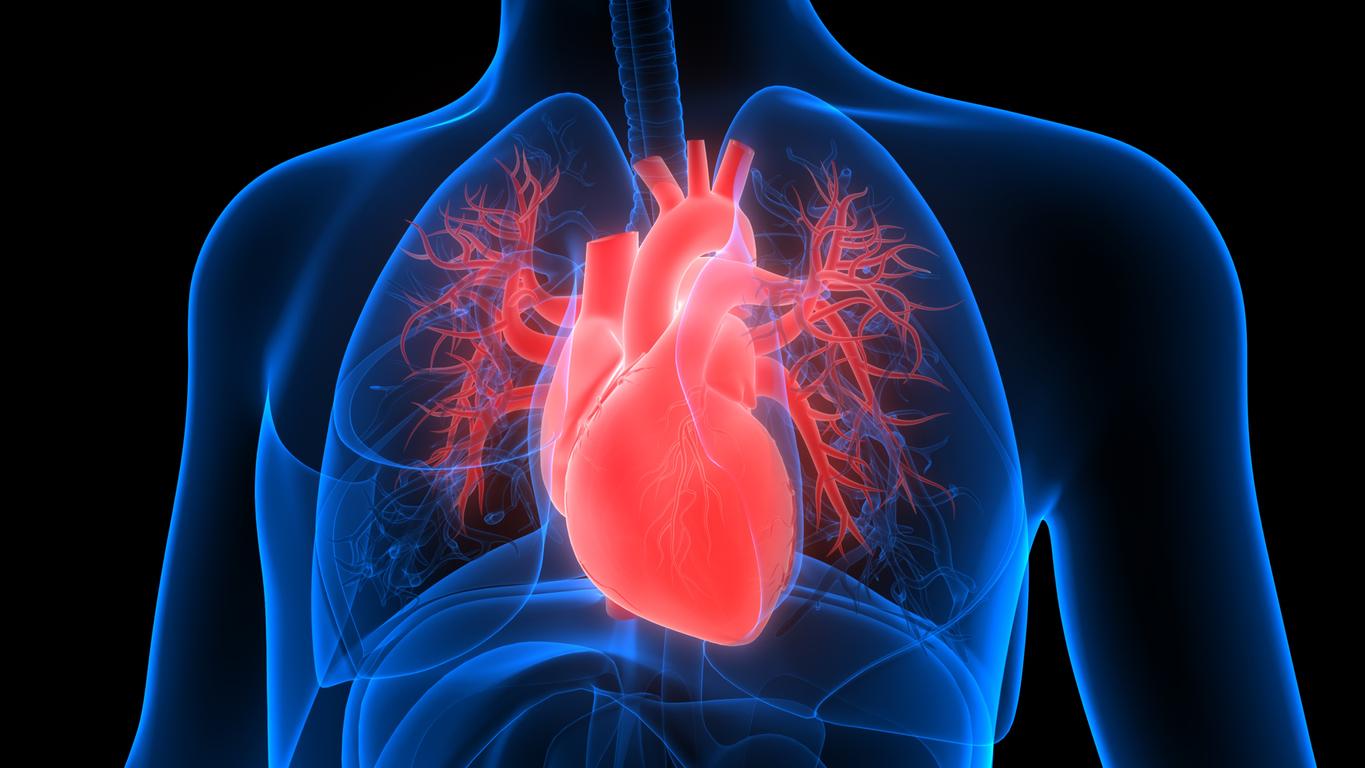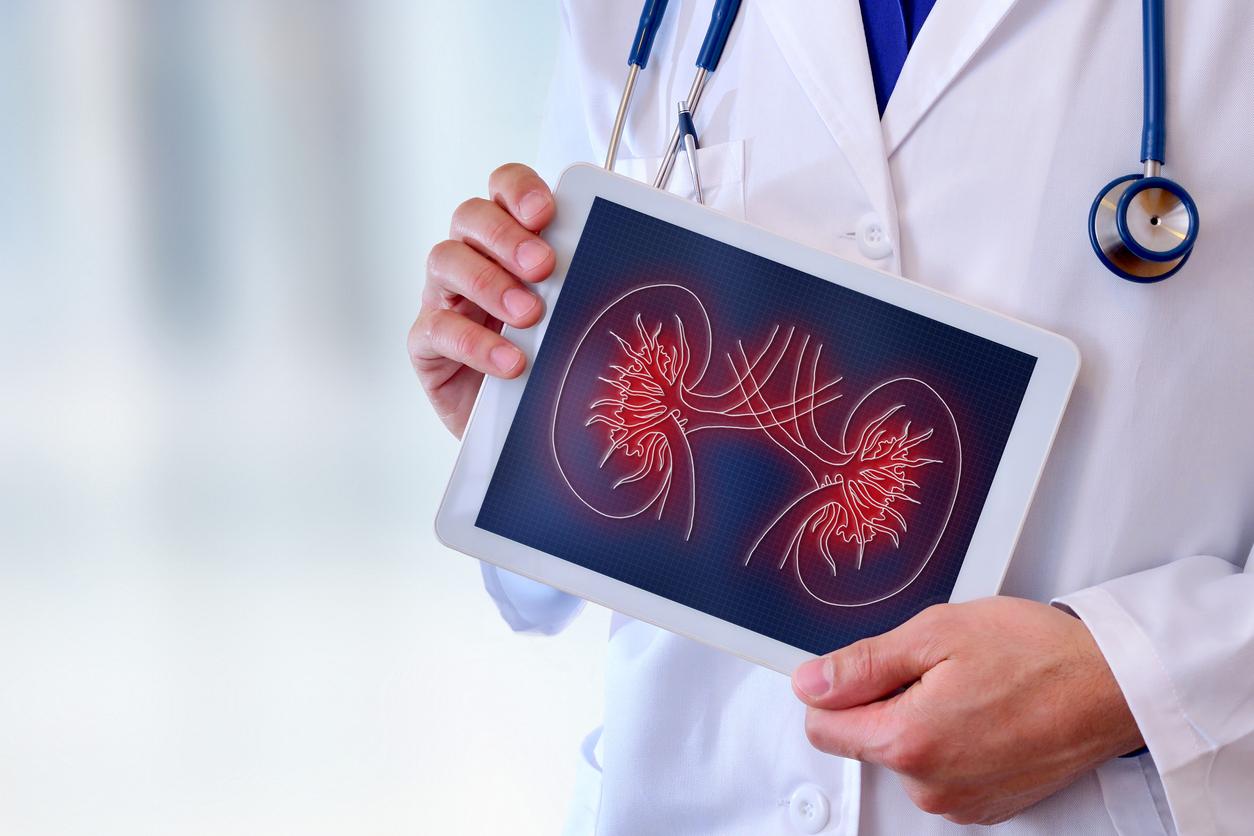Cardiorenal metabolic syndrome refers to the interconnection between cardiovascular disorders, type 2 diabetes, obesity and kidney disease.

- The American Heart Association has defined a new syndrome: cardio-renal metabolic syndrome.
- It corresponds to the links between type 2 diabetes, obesity, kidney and cardiovascular diseases.
- Four stages have been identified, but appropriate treatment can help it to regress.
L’American Heart Association, the American Heart Association, identifies a new pathology. In an article published in his magazine, Traffic, on October 9, she presents her conclusions on cardio-renal metabolic syndrome. For these experts, it corresponds to the links between cardiovascular disease, kidney disease, type 2 diabetes and obesity. The syndrome is graded into different stages: from 0, corresponding to the absence of risk factors, to 4, which concerns people most at risk of cardiovascular disease and/or renal failure.
Cardiorenal metabolic syndrome: the conjunction between different pathologies
“Cardiorenal metabolic syndrome is a consequence of the historically high prevalence of obesity and type 2 diabetes in adults and youth.detail these specialists. Type 2 diabetes and obesity are metabolic conditions that are also risk factors for cardiovascular disease.” They add that for people with type 2 diabetes or chronic kidney failure, cardiovascular disease is the most common cause of death.
What are the different stages of cardio-renal metabolic syndrome?
For these scientists, the challenge is to better prevent this syndrome and better manage it. To do this, they established different stages. The first corresponds to the absence of risk factors. “The goal at this stage is to prevent cardio-renal metabolic syndrome, they develop. This involves adopting a healthy lifestyle: balanced diet, physical activity, regular sleep, stopping smoking, etc. In their text, the researchers suggest screening adults at stage 0 every three to five years to assess blood pressure, triglycerides, HDL cholesterol and blood sugar.
The first stage is reached in cases of excess body fat and/or prediabetes. “Support for healthy lifestyle changes (healthy diet and regular physical activity) and a weight loss goal of at least 5% in those in stage 1 are recommended, with treatment of glucose intolerance if necessarythey indicate. Screening every two to three years is recommended to assess blood pressure, triglycerides, cholesterol and blood sugar..”
In stage 2, affected individuals have metabolic risk factors and sometimes kidney disease. “Stage 2 includes people with type 2 diabetes, high blood pressure, high triglycerides, or kidney disease.”, develop the scientists. At this stage, they consider it necessary to address risk factors”to prevent progression to cardiovascular disease and kidney failure”. This involves different adapted treatments and regular medical monitoring.
Stage 3 is associated with early cardiovascular disease in people with metabolic risk factors or kidney disease or in those at high risk for cardiovascular disease. “The goal of stage 3 care is to intensify efforts to prevent people at high risk from progressing to symptomatic cardiovascular disease and kidney failure“, they note.
In the later stage, people have symptomatic cardiovascular disease, excess weight, kidney problems and other risk factors. “At this point, people may have already had a heart attack or stroke or already have heart failure. They may also suffer from other cardiovascular problems“, observe the authors.
Cardiorenal metabolic syndrome: a pathology that can regress
These specialists also provide reassuring information: regression of this syndrome is possible. This means that adopting a healthier lifestyle, combined with weight loss, can help “regress to lower stages“. But for this, they recall that it is necessary to correctly assess the risk of suffering from it. Scientists from the American Heart Association believe that an assessment should be carried out from the age of 30. “The advisory aligns with recommendations from the American Academy of Pediatrics that children and youth receive annual assessments of their weight, blood pressure, and mental and behavioral health, beginning at age 3 years old”, add the authors. They remind us that good health begins in childhood.

















